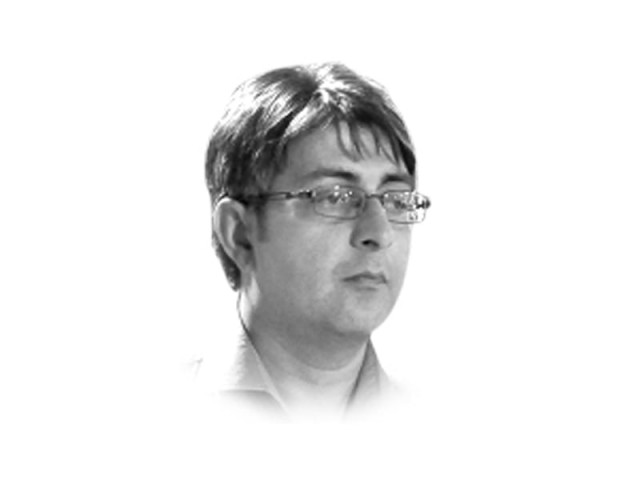A South Asian fork in the road
What happens if a court removes Mr Modi for his involvement in the 2002 communal violence in Gujarat?

The writer is an Islamabad-based TV journalist and tweets @FarrukhKPitafi
In Indian movies, back then, there was one interesting plot device worth mentioning. If I recall correctly, they first showed children playing chor sipahi, a game in which one player would act as a cop while the other would pretend to be a thief. Then, we were shown that the child pretending to be a cop after many years has really become a cop and the thief is now a real thief. Then, after a few more twists and turns, the cop owing to his own fault or some unfortunate events, loses faith in the system and becomes a criminal. Meanwhile, the thief eventually returns to the good side and helps in hunting down the criminals — dramatic transformation of character and plot twist. At least, back then, our Indian friends were aware of the amorphous nature of history, that nothing can and should be taken for granted.
Now to real life. In the fateful month of August in 1947, two countries were carved out of colonial India. One inherited the administrative heart, brain and central nervous system of the old mammoth. The second, following the subcontinent’s mythical standards, was born out of a severed limb. The former turned out to be a stable democracy. The latter, which was supposed to grow into an entire body out of one limb, managed to construct an ugly duckling for the first 50 years of its existence. Temperamental, insecure, autocratic, superstitious, inept and stupid — it made a mockery of its own life. There were one or two good things too, but who cares? And then, 50 years down the lane came a plot twist. The former that shared the same genetic material, belatedly discovered the cheap thrill of flirting with the very gene that had led the latter to the precipice. Meanwhile, one fine morning, the latter was confronted by the consequences of its actions. It paid a heavy price for its actions for over a decade, and penitent, is still making amends, burying its beloved every single day. And the former now takes savage pleasure in seeing his misery and yet, instead of learning from his experiences is bent on repeating the latter’s mistakes. Result?
Today, Pakistan is busy conquering its demons, believes in democracy and is wary of radicalism. Meanwhile, India has a radical party and a radical leader calling shots in New Delhi and has managed to sideline natural dissent that is the hallmark of any democracy. Bad patches are not alien to stable democracies. But even the biggest apologists of the Indian state cannot deny that the very nature of Indian society is changing. What happens if a court removes Mr Modi for his involvement in the 2002 communal violence in Gujarat? That’s one remote possibility. And yet, that is why witnesses against him are so ruthlessly being crushed. But here is the problem. You can get rid of Modi but not the ascendancy of the RSS and its affiliates like the BJP. Hence, a course correction is not only remote, but almost unrealistic.
So, what happens when 10 years down the lane, Pakistan transforms into a stable, institutional democracy and India is ruled by one man or party, that too, in the name of religion? Will the world still refuse to see the difference? I think not. Economic opportunity is one thing. But China is 10 times more populous than Japan, but still, the world has never betrayed the latter’s trust despite the bad memories of the Second World War.
Published in The Express Tribune, August 29th, 2015.
Like Opinion & Editorial on Facebook, follow @ETOpEd on Twitter to receive all updates on all our daily pieces.















COMMENTS
Comments are moderated and generally will be posted if they are on-topic and not abusive.
For more information, please see our Comments FAQ